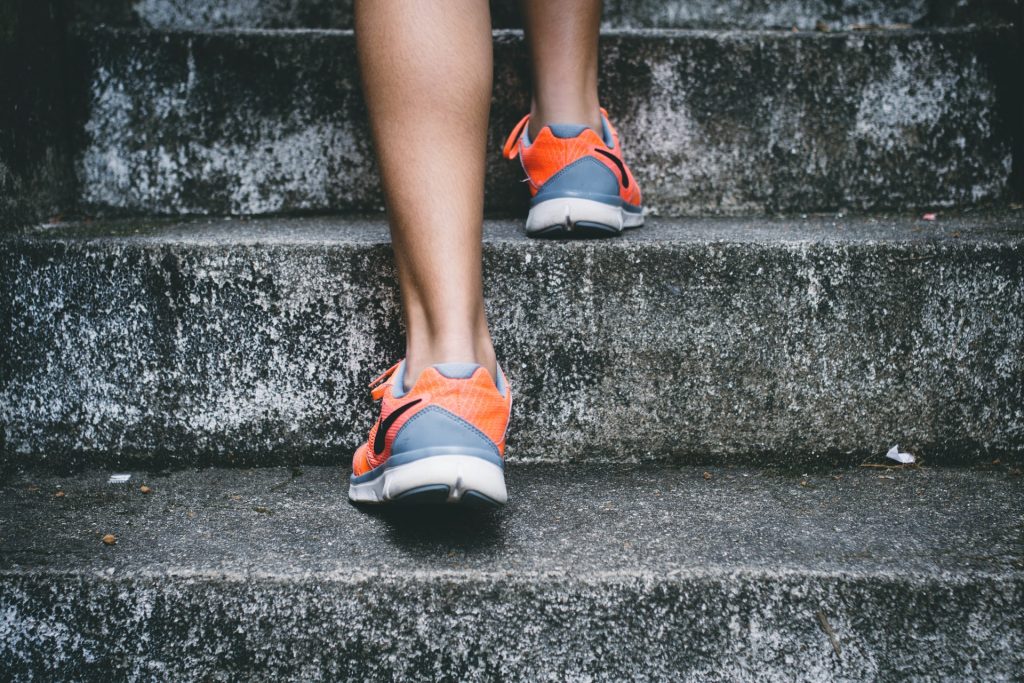Exercise is good for people with wear-and-tear joint arthritis and should be a “core treatment”, new draft guidelines for the NHS advise.
It may hurt to begin with, but can then ease pain and help individuals with osteoarthritis stay supple, healthy and slim, says the National Institute for Health and Care Excellence (NICE).
Scans aren’t needed to diagnose it and strong painkillers are not recommended.
There is no evidence flushing out the joint helps either.
Wear and tear
Osteoarthritis is very common – about 7.4 million people in England over the age of 45 have it.
It can happen when the joints become damaged with age and injury. Being overweight is another risk factor.
Some people have mild symptoms. For others the pain, stiffness and swelling can be severe.
That can make exercising difficult, but according to the new NICE guidelines, physical activity should be the main treatment – not painkillers.
The charity Arthritis Action said it hoped the guidelines would reassure people with osteoarthritis that exercise is a good intervention.
Spokeswoman Dr Wendy Holden said: “Many wrongly believe that exercise can harm the joints, so this guidance is very important and will hopefully empower patients, and give them more confidence to make healthy lifestyle changes that will really help improve their pain and quality of life.”
What helps
Exercise builds muscles and can help people maintain a healthy weight, which is important for managing osteoarthritis.
If there is pain, consider using an anti-inflammatory cream or gel or taking an ibuprofen or similar type of non-steroidal anti-inflammatory (NSAID) medicine, but not a strong opioid, says the advice.
Arthritis charities are concerned that too many patients are put on painkillers rather than getting the right type of help – whether that is exercise therapy or a timely hip or knee replacement.
A backlog of operations during the pandemic means many who need surgery are still waiting.
- NHS waiting-list backlog will take year to clear
- Most hip and knee replacements last longer than thought
NICE says a joint replacement may be the right option for some and that hospitals should not be turning away people who could benefit, but are overweight. Obesity is not a bar to surgery, but losing weight by following a healthy diet and exercising will reduce strain on the joints.
Tracey Loftis, from the charity Versus Arthritis, said: “Our own research into the support given to people with osteoarthritis showed that far too many do not have their conditions regularly reviewed by healthcare professionals, and even fewer had the opportunity to access physical activity support.
“The lack of alternatives means that, in many cases, people are stuck on painkillers that are not helping them to live a life free from pain.”
Types of exercise
Your doctor or physiotherapist will be able to advise the best type for your condition, but generally:
- Low impact activities such as walking, cycling and exercising in water are good
- Strengthening exercises working major muscle groups – such as leg raises if you have a bad knee – can help maintain and improve muscle strength to support and protect the affected joint
- Flexibility exercises that include gentle stretching and balancing may be helpful for mobility
- Aerobic exercise that increases your heart rate is good for both the heart and lungs as well as staying fit
- Remember to warm up before a session and cool down afterwards
Source: Versus Arthritis and The Arthritis Foundation
Dr Paul Chrisp, from NICE, said: “Muscle strengthening and aerobic exercise can have an impact on not just managing the condition, but also providing people with an improved quality of life.
“Beginning that journey can be uncomfortable for some people at first, and they should be supported and provided with enough information to help them to manage their condition over a long period of time.
“We have taken the decision to not recommend some painkillers, such as paracetamol and some opioids for osteoarthritis.
“This is because new evidence has shown there was little or no benefit. In the case of strong opioids, there was evidence that they can cause harm in the longer term, including possible addiction.”
The guidelines do not cover other types of arthritis, such as rheumatoid arthritis.
Article from Michelle Roberts BBC – https://www.bbc.com/news/health-61255733






















